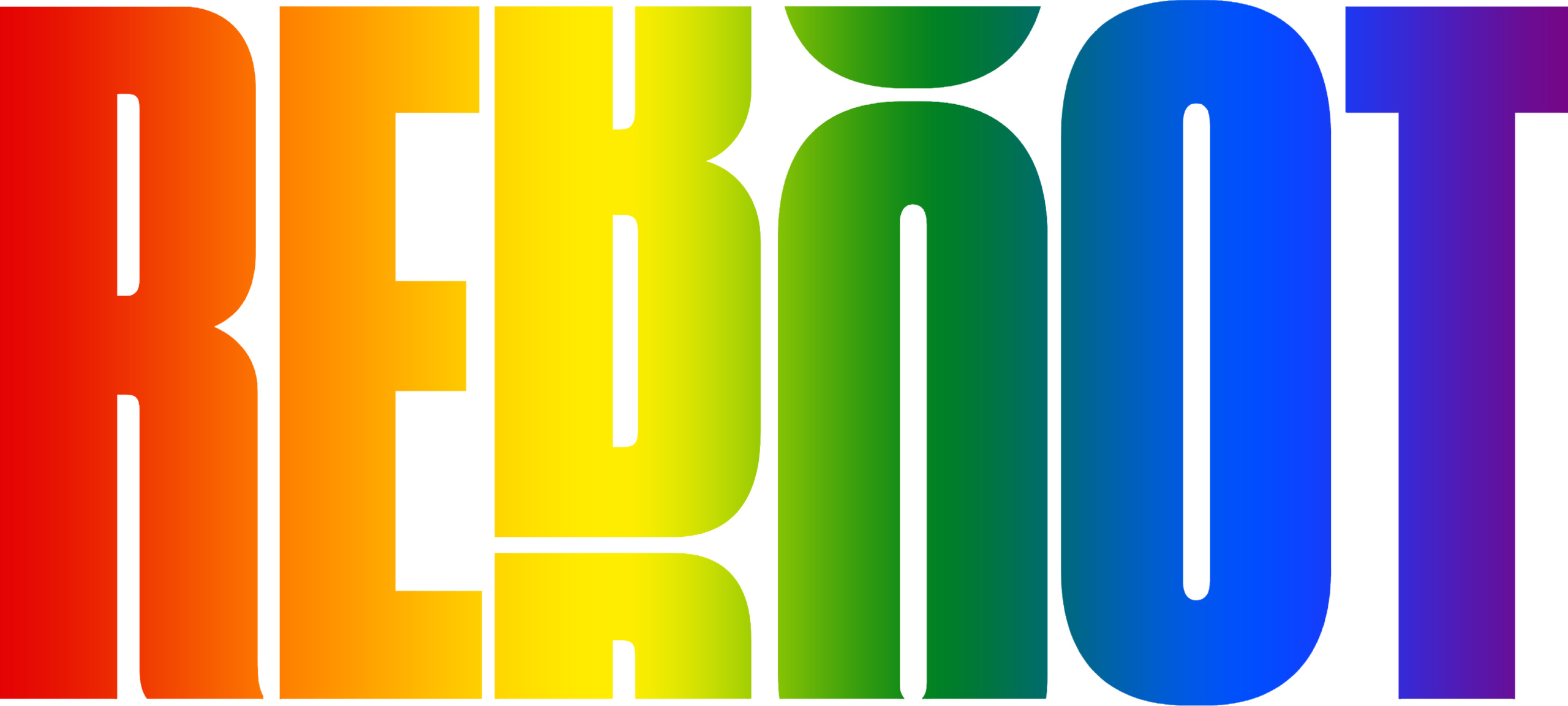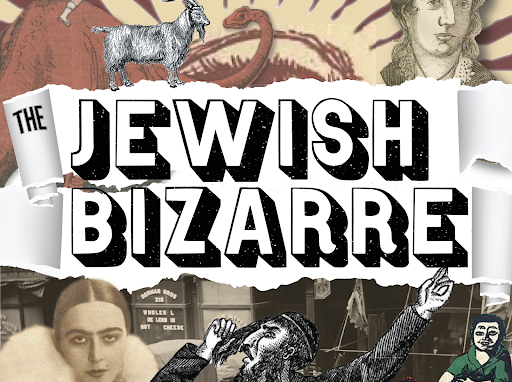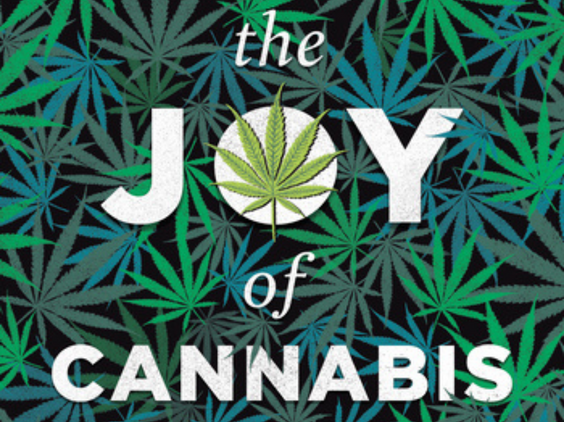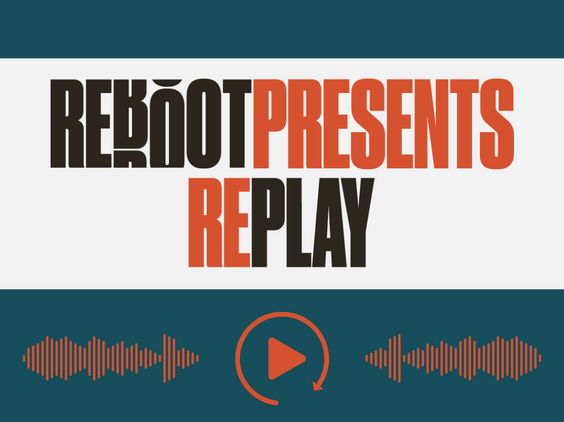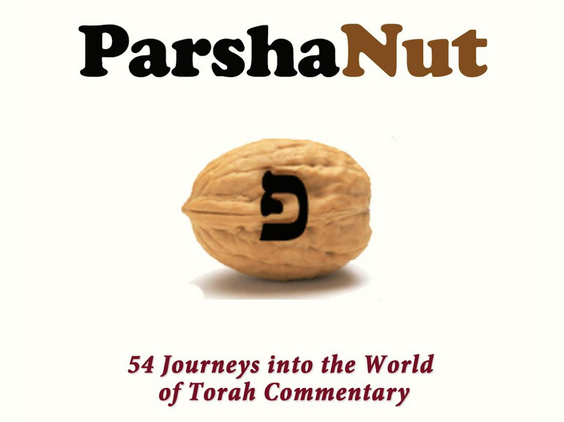Husband. For Better or For Worse.
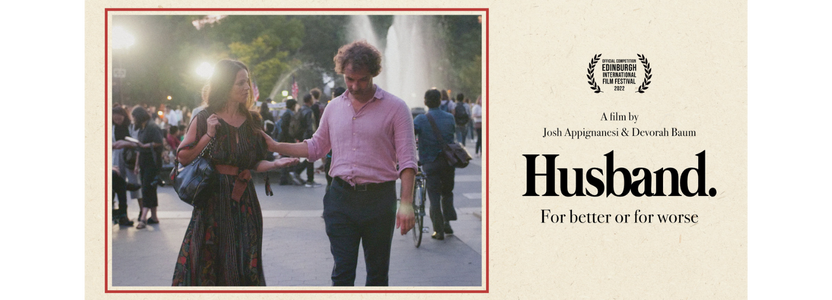
For Valentine’s Day, we are highlighting the film Husband from UK Reboot Network member Josh Appignanesi about accompanying his wife with their two kids to New York City for her book tour of Feeling Jewish. It opens up the conversation about the social constructs of gender and marriage with honesty and hilarity. Watch the trailer here.
Husband. For Better or For Worse.
In my new movie, Husband, which I co-directed with my wife, Devorah Baum, we play ourselves in what you might call an experiment of auto-fictional self-satire. That is, yep, I play the eponymous butt of the joke. What other way would there even be to play that role right now? Even the word itself sounds painfully archaic – comic, even – to our progressive ears. “Husband.” Ugh.
The film follows Devorah through her first ever book tour. We’re Brits lost in the intimidating NYC literary scene. We have two small kids, one breastfeeding, staying in a borrowed one-bedroom with no air-con during a heatwave. She could use some help from her partner. Does she get it? Well, if by help, you include me shoving a camera in her face and aggressively trying to make her big moment all about my own filmmaking practice, then sure, plenty.
I guess we’re trying to do something about gender norms with the film. About the stubbornly unreconstructed “male” feelings that turn out to surface even when you’re apparently the reconstructed type – one even married to an actual deconstructionist. Then, over the course of the film, hoist by its own petard, the male gaze turns out to reveal more about the gazer than the gazed-at, the controlling guy turns out to be the out-of-control, neurotic, uncertain, guilty, hysterical one – embodying all those affects that he just stereotyped, ascribed and exported, in line with most of our world, as somehow ‘female’.
That’s part of the film’s shtick. But I’m finding it hard to take how unbearably Jewish the whole thing is. Because all those same stereotypes are frequently also ascribed to the Jew, and what a show to make of your own face that would be.
To be clear: the film does its best to half-shamefacedly scrub the J-word from repeated apparition (hey, we’re from Europe – antisemitism lands more fearfully when you’re 0.3% of the population and have been subject to local genocide in living memory). But there is no denying the film’s Jewishness. It’s not just that most of the film follows two loved-up, self-hating, overeducated neurotics walking and talking their way through the Manhattan streets, kvetching and kvelling to a non-stop Jazz soundtrack. To utilise another adaptive phrase our kind have come to find useful, “Enough, already.”
But no, there’s more. The book Devorah is touring, Feeling Jewish, is, well, precisely about these “quintessentially Jewish” feelings. Cue chapters on self-hatred, hysteria, paranoia, guilt… you get the picture. Although it’s also, more surprisingly, about how we have the potential to make something beneficial of those bothersome affects, if we can first of all, bear to admit them.
Well, I hope she’s right, because right now, I’m feeling too Jewish by half: exposed and self-exposing, both unwelcome insider and scared outsider, out on a limb, looking over my shoulder, wondering what past trauma must have wounded me so deeply that I’ve gone and cut off my nose to spite my face.
The film culminates in a big, long conversation Devorah has with Zadie Smith about all these things: minority feelings, race, trauma envy, identitarian mirroring. The Blues, Jewish jokes. We shot it in late 2017, and while the film is funny and light, it’s set in that moment where we were all still getting used to actual proto-fascists in the White House – DACA rallies, camps, Charlottesville. Trying to get to grips with a time in which everyone, even those at the center, seemed to be feeling themselves marginalised, or at risk of being replaced. So it wasn’t just my feelings, it was everyone’s feelings that were running to fever pitch, at a peak of contagion.
What we’ve discovered, doing these books and films (we made another earlier about seeking parenthood), is that trying to share our questioning in this register – allowing these slippages and uncertainties in – really does seem to speak to some people. But it also really, really bugs others, especially those who are, understandably, looking for solid ground on which to stand and take a position in what frequently feels like a war.
With the latest film, it particularly seems to bug some people that the viewer can’t know exactly what’s real and what’s not in our little docufiction. How can I know whether to disapprove of this awful, controlling real-life husband, or instead laugh along with the self-recognition afforded by a fiction? How am I supposed to know whether to hate or love if I can’t tell if this really happened?
Is it OK to appeal here to a kind of Jewish nuance, a historicising experimentalism, an indeterminacy about positions and about genres that we wanted to keep in play? I guess what I’m saying is, I can’t tell what really happened. About this film, which may truly have been a folly. About married life, which is, well, the jury will always be out, even when a divorce is in. About these times, which time will probably tell, but for now, we’re all in history.
Meanwhile, Devorah’s coming to the United States in the Fall for her next book tour: a kind of revenge tome,On Marriage. It’s hot stuff. I’m bidding for the rights, but I’m not sure I even have a chance.
Josh Appignanesi is a writer/director based in London. His latest feature with Devorah Baum is HUSBAND, a critique of the modern marriage. Previously he made the surrealist psychothriller FEMALE HUMAN ANIMAL (2018) premiering at Sheffield doc/fest, starring and co-devised with the novelist Chloe Aridjis, and THE NEW MAN, the acclaimed feature documentary, with Devorah Baum.
Husband is streaming in the UK currently with plans to bring it to the United States. Find out more and get updates here.
